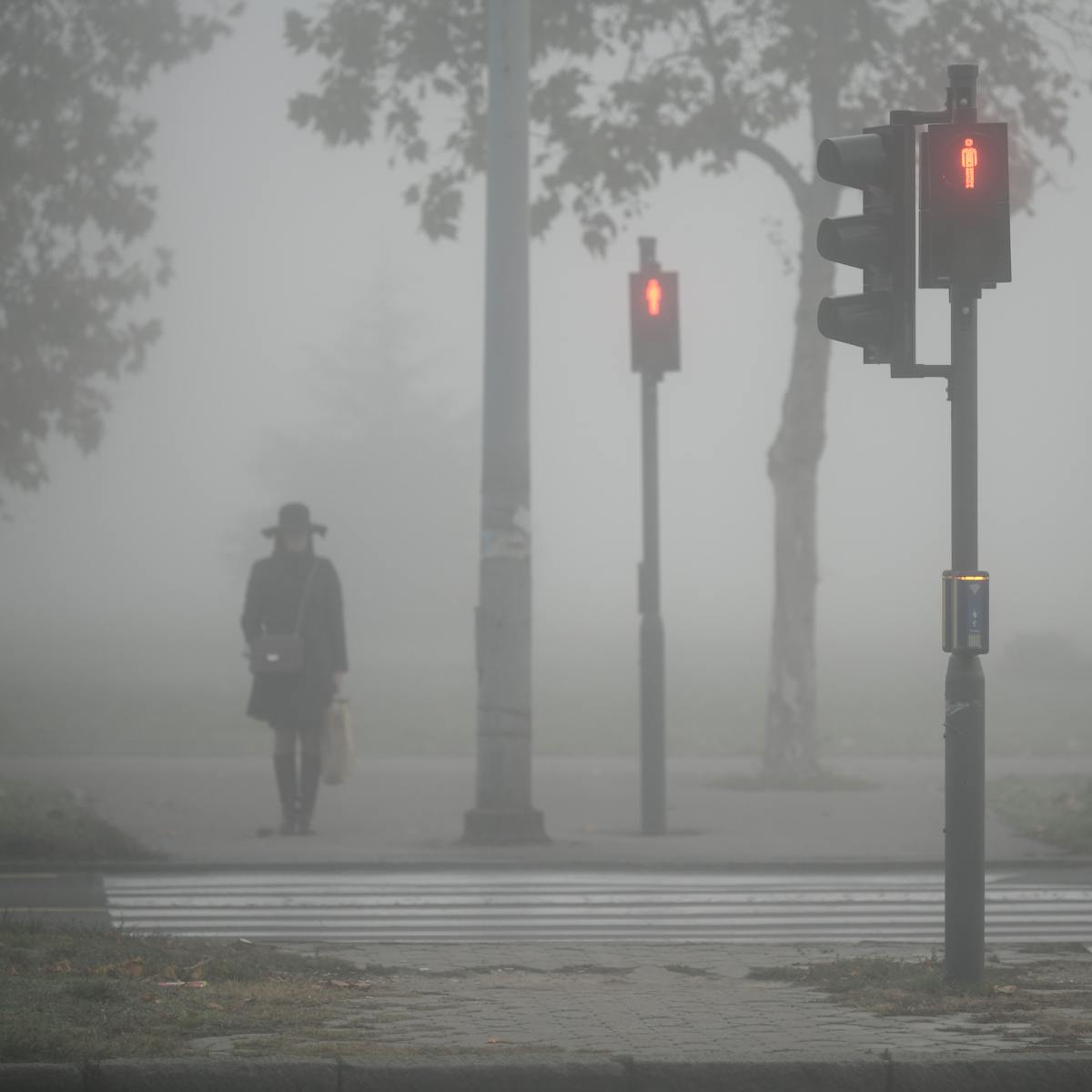Many cities in the Balkans experience very poor air quality, but citizens have come to accept this as normal. After experiencing the effects of a toxic landfill fire in Belgrade, Natasha Tripney discovers that the fightback against polluters is finally beginning.
On 8 August 2021, the residents of Belgrade woke up to an acrid smell in the air. As I walked through the leafy neighbourhood of Dorćol, in the old part of the city, in search of my morning coffee, people around me wrinkled their noses and asked each other about the source of the smell.
It wasn’t until the afternoon that an official statement was released. A fire had broken out at a landfill in Vinča, on the outskirts of Belgrade, covering the city with toxic smoke. Almost a full day after the fire had started, people were finally advised to stay indoors and shut their windows.
Even when there isn’t a landfill fire raging on the city’s fringes, the air quality in Belgrade is an ongoing problem for its citizens. The city is one of the most polluted in Europe and on occasion tops the global list, as it did one day in October 2021, when social media filled with pictures of the city obscured by a thick smog – the sort of thing the Victorians might have termed a “pea-souper”.
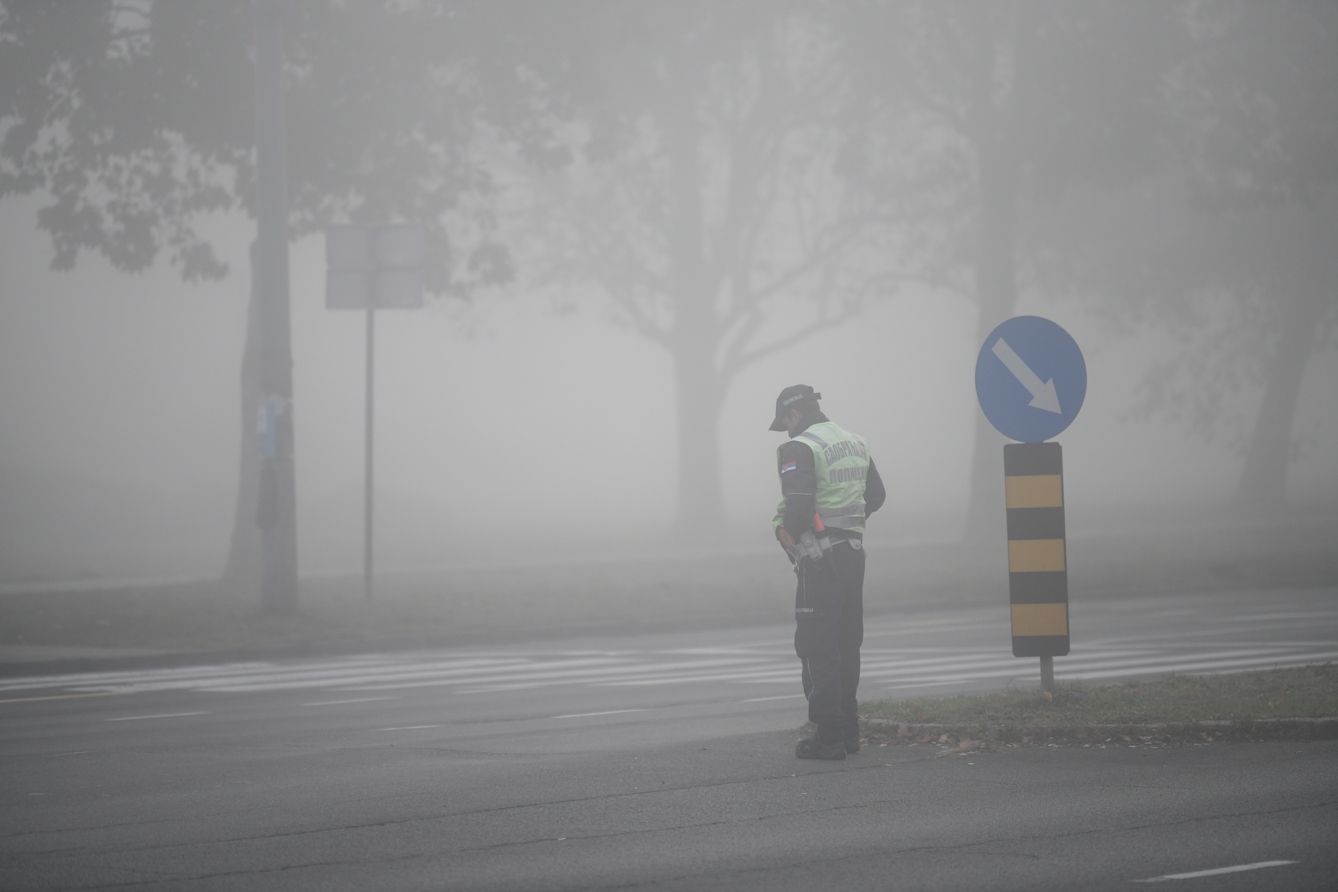
Serbia. Belgrade. Bulevar Umetnosti (Boulevard of Art). 2021.
Belgrade isn’t an anomaly. Other cities in the Balkans – Zagreb, Skopje, Prishtina and Sarajevo – also regularly rank high on the list. The human cost of this is considerable. A 2019 report by the World Health Organization estimated that in 2016 there were 6,592 deaths, and 131,183 years of life lost, due to air pollution in Serbia.
There are days when the air quality is so poor it’s unwise to go outside, particularly for those with health conditions that make them more vulnerable. My uncle is among those whose health is exacerbated by poor air quality, and winters in Belgrade – when pollution is at its worst and going outdoors hazardous – are hard.
How toxic air became the new normal
It takes a toll on the young and healthy too. Borisav Matić, a young critic and dramaturg from Serbia, wears an N95 mask outdoors on days when conditions are bad, but otherwise acknowledges there’s not a huge amount he can do day to day. “This is not a dangerous virus that you can hide from in your homes nor polluted water that you can choose not to drink, but the air that you must breathe.”
He thinks that many people still regard air pollution as a fact of life in the Balkans, not something that can be changed, an attitude that is amplified by Serbia’s state-run media. “They are not denying ecological problems but are saying that they are normal.”
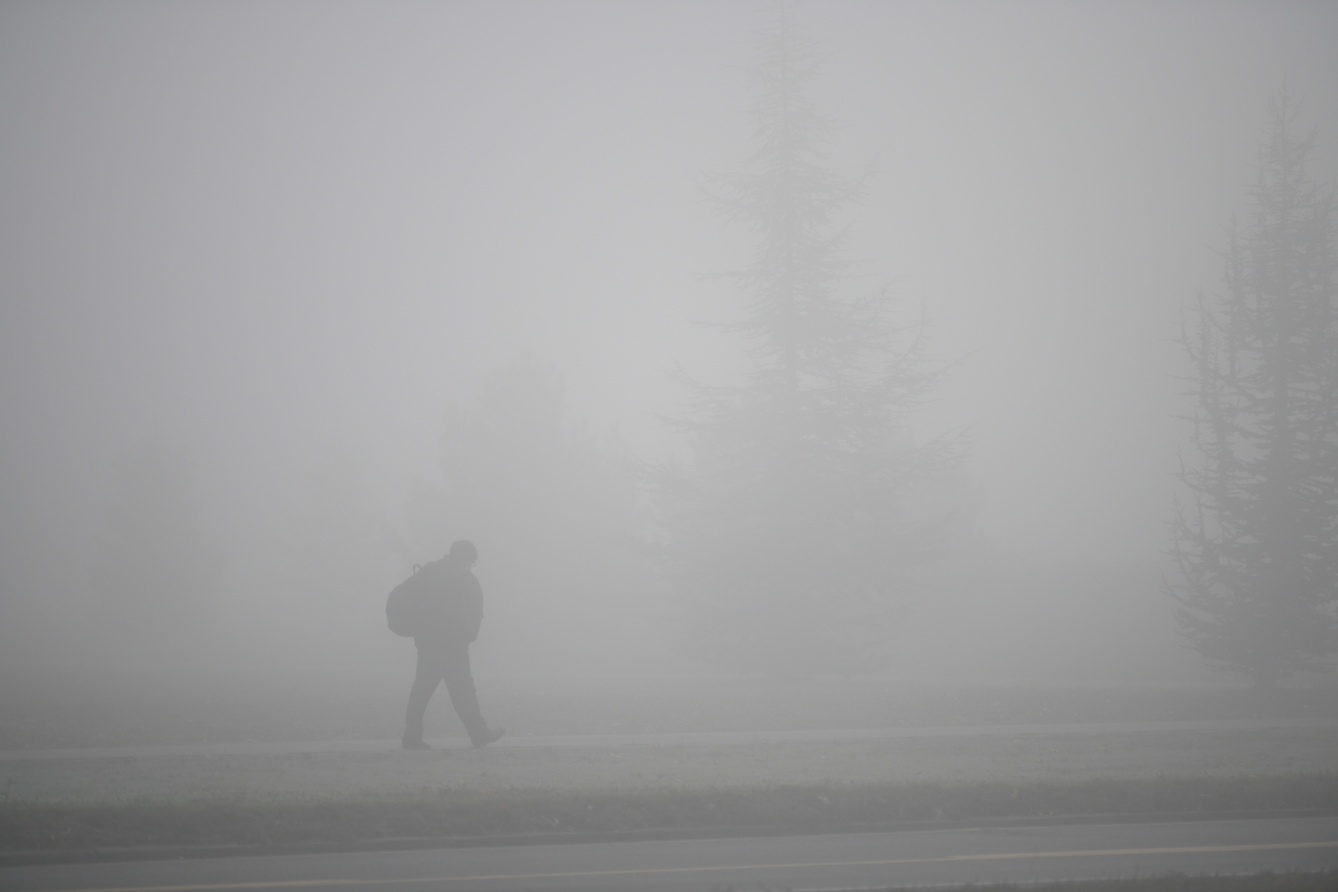
Serbia. Belgrade. Bulevar Mihajla Pupina (Boulevard Mihajla Pupina). 2021.
For Mina Milošević, who is working on her master’s at the faculty of dramatic arts in Belgrade, a pragmatic stance is the only way to cope. “I think that since my childhood I accepted that that’s the way it is, and if I start to think about the toxicity in the air I’m breathing and the water I’m drinking, I'm probably going to be permanently anxious and have mental health problems.”
Unless you can smell the acrid tang of burning garbage in the air, it’s easy to downplay the scale of the issue, to push it from your mind.
People have enough on their plates, she says – money worries, political concerns – to focus overly on the environment. “I have to forget about the fact that I am probably slowly dying just by breathing,” she says bluntly, “if I am not to die of anxiety before I die of pollution.”
But why is the air quality in Serbia and the wider western Balkan region so poor? As Davor Pehchevski, Balkan air-pollution campaign coordinator for CEE Bankwatch, a network of environmental NGOs in central and eastern Europe, explains, “Air pollution is probably the most complicated environmental issue, because it’s influenced by so many factors.”
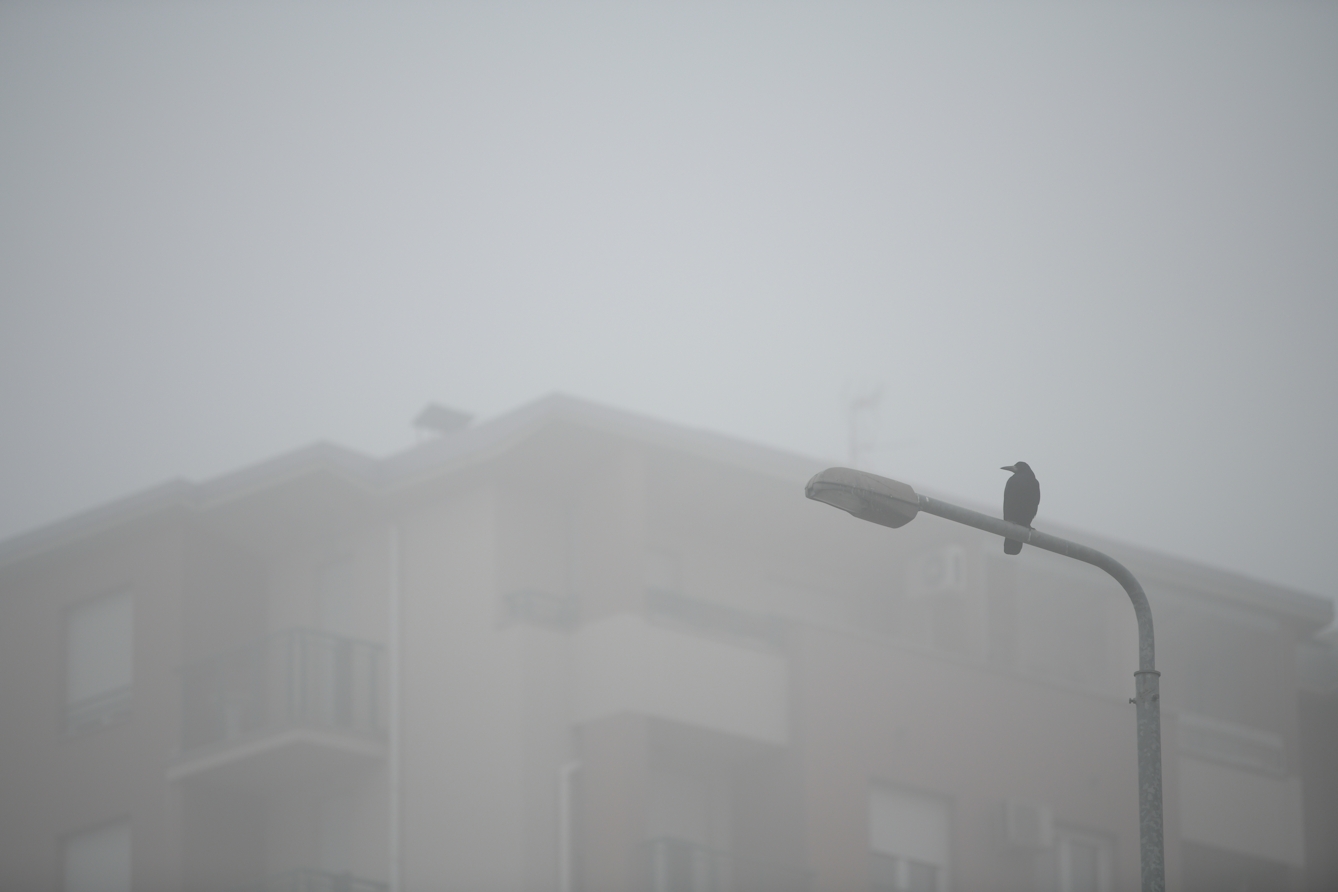
Serbia. Belgrade. Generala Stefanika (Street of General Stefanik). 2020.
Serbia is home to one of the biggest thermal-energy plants in Europe, located just outside Belgrade. There is a history of fires at the Vinča landfill. Domestic fuel usage plays a large part, as do transport emissions and various meteorological and geographic factors.
Factors fuelling airborne emissions
Ne Davimo Beograd (Don’t Let Belgrade Drown) was set up to protest the construction of a controversial riverside property development in the city in 2016, but it has since evolved into a political movement concerned with improving citizens’ quality of life. Predrag Momčilović, Ne Davimo Beograd’s international secretary, explains that “energy poverty” is one of the primary causes of air pollution in the city.
Many people still burn coal and wood to heat their homes because they cannot afford alternatives. For the same reason, people sometimes burn other materials, explains Pehchevski – furniture, for example – further polluting the air.
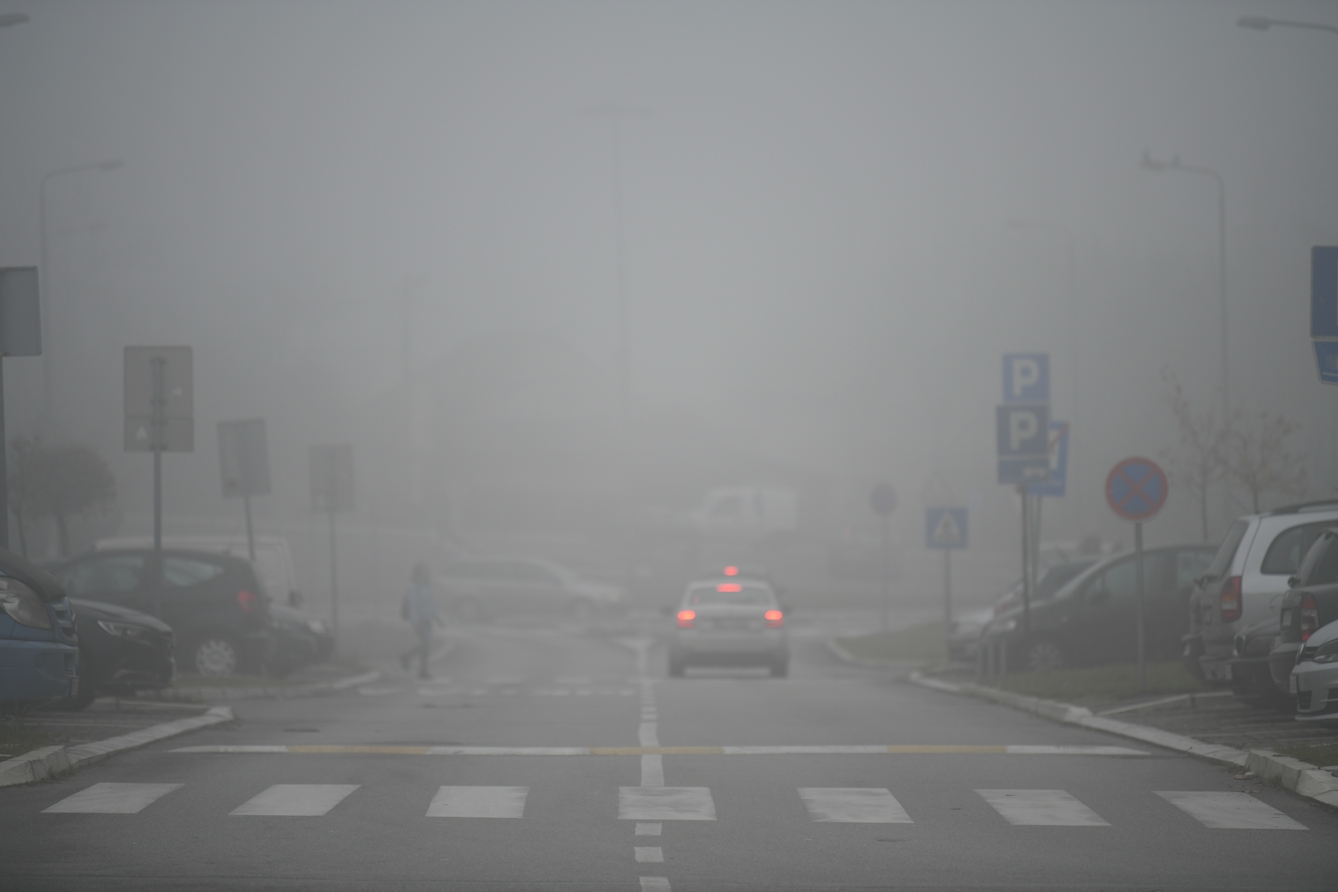
Serbia. Belgrade. Generala Stefanika (Street of General Stefanik). 2020.
While Belgrade is part of the European Bank for Reconstruction and Development’s Green Cities network, Momčilović does not believe that there is sufficient political will to create change. There’s a sense, he says, that the ruling party blames citizens for the issue, rather than regarding it as a systemic problem.
There are other societal factors to consider. In many Balkan countries, Pehchevski explains, car ownership is a point of pride, as well as a practical necessity. Belgrade has a tram network but, as of yet, no metro, and public transport usage still carries a degree of stigma for some, so there’s a tendency for people to buy older, imported, less environmentally friendly diesel cars.
A problem that affects everyone
Over recent months, however, Serbia has undergone something of an environmental awakening. Citizens have started to mobilise in defence of the environment. The catalyst for this was the presence of the mining company Rio Tinto in the country. This proved hugely unpopular, a sign of the government prioritising profit over the environment, and after a series of major protests and traffic blockades, the company’s lithium-mining licences were revoked.
Momčilović also notes optimistically that, whereas before you’d see all the same faces turning up at environmental actions, that’s no longer the case. Numbers are growing. People are more engaged.
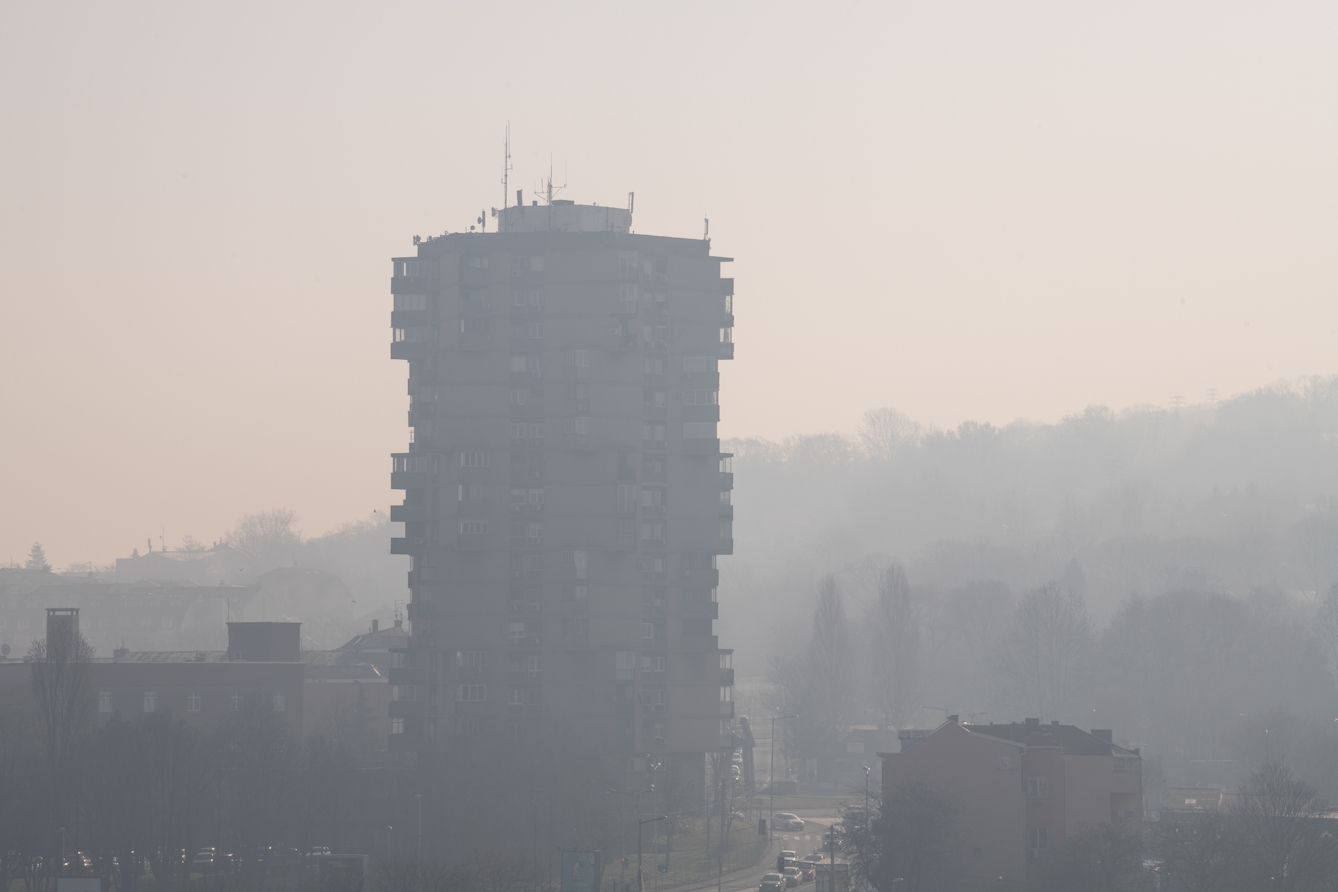
Serbia. Belgrade. Bulevar Despota Stefana (Boulevard of Despot Stefan). 2021.
I spend a lot of my time in Belgrade. I visit at least once a year, often more, and of course I worry and about my own health and that of my family, but unless you can smell the acrid tang of burning garbage in the air, it’s easy to downplay the scale of the issue, to push it from your mind.
One of the issues with air pollution is – for the most part – you can’t see it. That doesn’t mean it can’t hurt us. In the UK, legal history was made in 2020 when air pollution was ruled a cause of the death of a nine-year-old girl, Ella Adoo-Kissi-Debrah. She lived in Lewisham, not far from where I live now in London. This is an issue that affects us all.
In Serbia there’s a persistent belief that draughts are the cause of multiple ills. The notorious promaja is a thing to be feared. While this is simply superstition, something that grandmothers whisper while shaking their heads, it’s also unavoidably true that there are days in Serbia when opening a window can be hazardous to health.
About the contributors
Natasha Tripney
Natasha Tripney is a writer and theatre critic based in London. She is co-founder of Exeunt, an online theatre magazine, and of SEEstage. a platform for theatre criticism in South East Europe. She is a contributor to The Stage, the Guardian, and the BBC, and has a particular interest in theatre and performance in the Western Balkans.
Dragan Mujan
Dragan is a photographer based in Belgrade, Serbia. He has worked as a photographer for nine years, initially working in newspaper and fashion magazines before going freelance.
